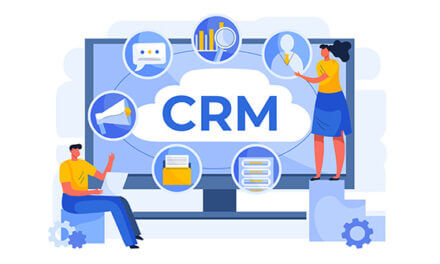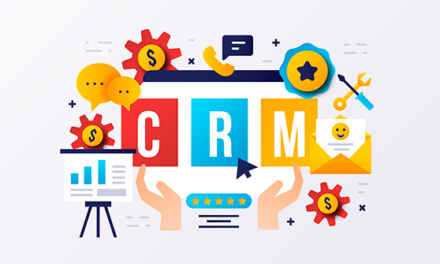Key Takeaways
- Choosing the best CRM for manufacturing business can optimize customer management and streamline sales processes.
- Essential features in a manufacturing CRM include inventory management, order processing, and production planning.
- Implementing a CRM in manufacturing enhances customer relationships, boosts sales performance, and improves production efficiency.
- Businesses should prioritize scalability, user-friendliness, and integration capabilities when selecting a CRM for manufacturing companies.
The manufacturing landscape is experiencing a dynamic shift, with technological advancements and evolving consumer demands reshaping the industry’s operational paradigms.
In this dynamic landscape, an effective CRM is essential for manufacturers aiming for competitiveness and sustainable growth.
The significance of a robust CRM for manufacturing businesses transcends mere customer management, extending to optimizing internal processes, boosting sales, and nurturing long-term customer relationships.
By leveraging the capabilities of a sophisticated CRM, manufacturers streamline workflows, improve customer engagement, and gain valuable insights.
In 2023, the search for tailored CRM software for manufacturing intensified, recognizing technology’s role in operational excellence and customer satisfaction.
With a multitude of CRM for manufacturers options available, choosing an ideal solution for manufacturing businesses is a crucial strategic decision.
This comprehensive guide aims to shed light on the top 12 CRM systems meticulously curated for the manufacturing industry.
It also examines each CRM platform, considering features, pricing, and user reviews. It aims to help manufacturing businesses make informed CRM decisions that suit their needs and long-term goals.
- What is a CRM for the manufacturing industry?
- What makes a good manufacturing CRM?
- 12 Best CRM for manufacturing businesses
- Why should you use a CRM for manufacturing?
- What are the main features to look for in a CRM for manufacturing?
- How can I benefit from using a CRM for manufacturing?
- How to choose the best CRM for manufacturing industry?
- Conclusion
What is a CRM for the manufacturing industry?
A CRM system tailored for manufacturing streamlines customer interactions, sales, and overall operations. This centralized tool manages customer data, tracks leads, and enhances relationships.
This specialized CRM tool acts as a centralized hub, allowing manufacturing businesses to effectively manage customer data, track leads, and facilitate order processing.
What makes a good manufacturing CRM?
A good manufacturing CRM must have various key attributes addressing industry-specific challenges. It should seamlessly integrate with existing manufacturing processes and manage customer relationships, sales pipelines, and production workflows.
Customizable features like inventory tracking, order management, and supply chain analytics are crucial for enhancing operational efficiency and maintaining a competitive edge.
Moreover, a reliable manufacturing CRM should include an intuitive user interface, comprehensive reporting, and analytics capabilities, along with responsive customer support.
Providing real-time data insights, forecasting demand, and streamlining production schedules are vital for optimizing resource allocation, reducing production downtime, and meeting market demands.
Ultimately, a robust manufacturing CRM acts as a catalyst for fostering strong customer relationships, driving operational agility, and maximizing overall business productivity and profitability.
12 Best CRM for manufacturing businesses
1. Salesmate
Salesmate is a comprehensive CRM software designed to streamline sales processes and enhance customer management for manufacturing businesses. It offers an array of features tailored to sales teams, enabling efficient lead management, sales automation, and detailed analytics.
Features
- Lead management and tracking
- Sales automation and workflow management
- Contact management and segmentation
- Pipeline management and forecasting
- Integration with various business tools
Pricing
- Starter plan: $12/User per month
- Growth plan: $24/User per month
- Boost plan: $40/User per month
- Enterprise plan: Custom pricing
Pros
- User-friendly interface
- Customizable pipelines
- Comprehensive reporting capabilities
- Excellent customer support
Cons
- Limited customization options for some features
- Higher pricing tiers for advanced functionalities
G2 Ratings
- Salesmate has an average rating of 4.5 out of 5 stars on G2.
2. HubSpot
HubSpot offers a powerful CRM solution with a wide array of marketing and sales tools designed to enhance customer engagement and streamline business operations. It provides comprehensive marketing automation features along with intuitive customer management capabilities.
Features
- Contact management and segmentation
- Lead tracking and email tracking
- Marketing automation and email marketing
- Integration with various marketing platforms
Pricing
- Professional – $450/mo
- Enterprise – $1200/mo
Pros
- Comprehensive marketing and sales tools
- User-friendly interface
- Free version for basic CRM needs
Cons
- Expensive pricing for advanced features
- Steep learning curve for complex functionalities
G2 Ratings
- HubSpot has an average rating of 4.4 out of 5 stars on G2.
3. LeadSquared
LeadSquared excels at managing relationships with dealers, distributors, and even end-customers. Its features include automation for tasks like creating beat plans for sales reps, tracking rep performance, and capturing leads directly through your call centre.
Features
- Sales pipeline management
- Lead scoring and nurturing
- Automated email marketing
- Quote generation
- Reporting and analytics
Pricing
- Available upon request
Pros
- Increased sales efficiency
- Improved conversion rates
- Data-driven decision making
- Streamlined communication
Cons
- May require customization for complex sales processes
- Initial learning curve for the sales team
G2 Ratings
- LeadSquared has an average rating of 4.4 out of 5 stars on G2
4. NetHunt
NetHunt is a CRM system integrated with Gmail, offering seamless email tracking, customer management, and workflow automation. It provides customizable fields, email templates, and contact synchronization for efficient customer relationship management.
Features
- Email tracking and customer management
- Workflow automation and customization
- Contact synchronization and email templates
Pricing
- Plans start at $24 per user per month
- Additional features available at higher pricing tiers
Pros
- Seamless integration with Gmail
- Intuitive interface
- Customizable workflow automation
Cons
- Limited third-party integrations
- Advanced features compared to some other CRM tools
G2 Ratings
- NetHunt has an average rating of 4.6 out of 5 stars on G2.
5. Pipedrive
Pipedrive is a sales CRM software designed to streamline sales processes and optimize customer relationship management. It offers customizable sales pipelines, contact management, and sales reporting tools for effective sales pipeline management.
Features
- Sales pipeline management and customization
- Contact management and segmentation
- Sales reporting and analytics
Pricing
- Essential plan – $9.90 per user per month
- Advanced plan – $19.90 per user per month
- Professional plan – $39.90 per user per month
- Power plan – $49.90 per user per month
- Enterprise plan – $59.90 per user per month
Pros
- Intuitive interface
- Customizable pipeline stages
- Comprehensive sales reporting
Cons
- Some advanced features require higher pricing plans
- Email integration could be more seamless
G2 Ratings
- Pipedrive has an average rating of 4.2 out of 5 stars on G2.
6. EngageBay
EngageBay offers an all-in-one CRM platform, encompassing marketing automation and customer support tools. It provides comprehensive CRM functionalities, email campaigns, and ticketing features for efficient customer relationship management.
Features
- CRM and contact management
- Marketing automation and email campaigns
- Customer support and ticketing
Pricing
- Plans start at $8.99 per user per month
- Additional features available at higher pricing tiers
Pros
- All-in-one platform for CRM, marketing, and customer support
- Affordable pricing
- Customizable automation workflows
Cons
- Limited advanced features compared to some other CRM platforms
- Occasional interface lag
G2 Ratings
- EngageBay has an average rating of 4.6 out of 5 stars on G2.
7. Freshsales
Freshsales is a CRM tool that offers contact management, lead scoring, and sales pipeline management features. It utilizes AI-based lead scoring and advanced analytics to streamline the sales process and enhance customer relationship management.
Features
- Contact management and segmentation
- Lead scoring and email tracking
- Sales pipeline management and analytics
Pricing
- Growth: $12 per user per month
- Pro: $39 per user per month
- Enterprise: $69 per user per month
Pros
- Intuitive interface
- Powerful lead scoring capabilities
- Comprehensive reporting functionalities
Cons
- Limited customization options for certain features
- Higher pricing tiers for advanced sales and marketing features
G2 Ratings
- Freshsales has an average rating of 4.5 out of 5 stars on G2.
8. Keap CRM
Keap CRM is a comprehensive customer relationship management tool that offers automation and sales features for small businesses. It provides contact management, sales pipeline tracking, and marketing automation to streamline business operations.
Features
- Contact management and segmentation
- Sales pipeline tracking and management
- Marketing automation and campaign management
Pricing
- Pro: $159 per month
- Max: $229 per month
Pros
- Customizable automation features
- Comprehensive contact management
- Streamlined sales and marketing processes
Cons
- Some advanced features require higher-priced plans
- Limited customization options for certain functionalities
G2 Ratings
- Keap CRM has an average rating of 4.2 out of 5 stars on G2.
9. Zendesk Sell
Zendesk Sell is a sales CRM software designed to streamline sales processes and enhance customer management. It offers a range of sales and contact management features, along with reporting and analytics tools for data-driven decision-making.
Features
- Contact and lead management
- Sales pipeline tracking and management
- Reporting and analytics tools
Pricing
- Sell Team Plan: $19/user per month
- Sell Growth Plan: $55/user per month
- Sell Professional Plan: $115/user per month
Pros
- Intuitive interface
- Comprehensive sales pipeline management
- Detailed reporting and analytics capabilities
Cons
- Some advanced features may require higher-priced plans
- Integration with third-party tools could be more extensive
G2 Ratings
- Zendesk Sell has an average rating of 4.2 out of 5 stars on G2.
10. Maximizer CRM
Maximizer CRM is a comprehensive customer relationship management tool designed to enhance customer interactions and streamline business operations. It offers a range of features, including contact management, lead tracking, and sales automation.
Features
- Contact management and segmentation
- Lead tracking and opportunity management
- Sales automation and workflow management
Pricing
- Maximizer is a per-user subscription model with annual billing plans. They offer two editions plus two pre-configured versions for Financial and Insurance Advisors.
Pros
- Comprehensive contact management
- Effective lead tracking and opportunity management
- Customizable workflow automation
Cons
- Higher pricing compared to some other CRM tools
- Learning curve for complex functionalities
G2 Ratings
- Maximizer CRM has an average rating of 3.9 out of 5 stars on G2.
11. Insightly
Insightly is a CRM platform that offers a comprehensive set of tools for contact management, project management, and sales automation. It provides features such as lead routing, workflow automation, and detailed reporting for streamlined business operations.
Features
- Contact management and segmentation
- Project and task management
- Sales automation and lead routing
Pricing
- Plus: $29 per user per month
- Professional: $49 per user per month
- Enterprise: $99 per user per month
Pros
- Comprehensive project and task management
- Effective lead routing and workflow automation
- Detailed reporting and analytics capabilities
Cons
- Some advanced features may require higher-priced plans
- Integration with third-party tools could be more extensive
G2 Ratings
- Insightly has an average rating of 4.2 out of 5 stars on G2.
12. SugarCRM
SugarCRM is a customer relationship management platform that offers a range of features for sales, marketing, and customer support. It provides comprehensive tools for contact management, lead tracking, and campaign management to streamline business operations.
Features
- Contact and lead management
- Marketing campaign management
- Customer support and ticketing
Pricing
- Plans start at $40 per user per month
- Additional features available at higher price points
Pros
- Comprehensive marketing and customer support tools
- Customizable sales and lead management
- Detailed reporting and analytics capabilities
Cons
- Higher pricing compared to some other CRM tools
- Learning curve for complex functionalities
G2 Ratings
- SugarCRM has an average rating of 3.9 out of 5 stars on G2.
Why should you use a CRM for manufacturing?
In the dynamic landscape of the manufacturing industry, integrating a robust CRM system has become increasingly essential.
A CRM solution tailored specifically for the manufacturing sector offers a multitude of benefits that can significantly enhance various aspects of business operations, customer management, and overall profitability.
Streamlined customer management
A CRM system enables manufacturing businesses to efficiently manage customer data, interactions, and feedback in one centralized platform.
This facilitates improved customer communication, personalized service delivery, and effective resolution of customer queries, ultimately fostering stronger and long-lasting customer relationships.
Enhanced sales processes
By leveraging a CRM system, manufacturing businesses can streamline their sales processes, effectively track leads, and manage complex sales pipelines.
This results in improved sales forecasting, efficient lead management, and optimized conversion rates, thereby boosting overall sales performance and revenue generation.
Efficient order processing
CRM tools tailored for manufacturing businesses often include features for managing orders, tracking inventory, and processing transactions seamlessly.
Such functionalities ensure timely order fulfillment, effective inventory management, and streamlined supply chain operations, contributing to enhanced operational efficiency and customer satisfaction.
Data-driven decision-making
Implementing a CRM system enables manufacturing businesses to gather valuable insights from customer data and sales analytics.
By leveraging these data-driven insights, businesses can make informed decisions, identify market trends, and proactively respond to changing customer preferences, leading to more effective strategic planning and improved business outcomes.
Improved collaboration and communication
A CRM system fosters better collaboration and communication among various teams within a manufacturing business.
By facilitating the sharing of critical customer information, sales data, and production schedules, CRM tools promote cross-departmental coordination, leading to enhanced teamwork, increased productivity, and streamlined business processes.
Scalability and adaptability
CRM solutions designed for the manufacturing sector often offer scalability and adaptability to accommodate the evolving needs of growing businesses.
They can be customized to integrate with existing manufacturing processes, scale alongside business growth, and adapt to changing market dynamics, ensuring Long-term sustainability and competitiveness.
For businesses seeking to maximize these capabilities, exploring services like Salesforce managed services for manufacturing, among others, can provide additional support and customization. This ensures that your CRM system is precisely configured to meet your specific operational needs.
What are the main features to look for in a CRM for manufacturing?
Selecting the right CRM system is crucial for manufacturing businesses to effectively manage customer relationships, streamline sales processes, and optimize overall operational efficiency.
When considering a CRM tailored specifically for the manufacturing sector, several key features are essential to ensure seamless integration with existing manufacturing processes and comprehensive management of customer interactions.
Inventory management
A robust CRM for manufacturing should include inventory management features that enable businesses to track and manage inventory levels, monitor stock movement, and streamline procurement processes.
This feature facilitates effective inventory planning, prevents stockouts, and ensures timely order fulfillment, thereby enhancing customer satisfaction and minimizing operational disruptions.
Order processing
Efficient order processing functionalities are essential for a manufacturing CRM, allowing businesses to manage customer orders, track order status, and streamline order fulfillment processes.
This feature ensures accurate order processing, timely delivery of products, and effective coordination with the production and supply chain teams, contributing to improved customer satisfaction and optimized production cycles.
Production planning
A CRM system tailored for manufacturing should offer production planning capabilities, enabling businesses to manage production schedules, allocate resources, and track production workflows.
This feature facilitates optimized resource utilization, minimizes production downtime, and ensures timely delivery of products, thereby enhancing overall production efficiency and meeting customer demands effectively.
Supply chain visibility
Integration with supply chain management features is crucial for a manufacturing CRM, providing businesses with real-time visibility into the entire supply chain, including supplier management, logistics, and distribution channels.
This feature allows businesses to proactively identify potential supply chain disruptions, optimize sourcing strategies, and ensure smooth coordination among various stakeholders, leading to enhanced supply chain efficiency and improved customer service.
Customer service management
Comprehensive customer service management functionalities are essential for a manufacturing CRM, enabling businesses to effectively manage customer queries, complaints, and service requests.
This feature facilitates timely resolution of customer issues, improved customer communication, and enhanced customer satisfaction, thereby fostering Long-term customer loyalty and positive brand reputation.
Reporting and analytics
Advanced reporting and analytics capabilities are critical for a manufacturing CRM, providing businesses with valuable insights into sales performance, customer behavior, and production trends.
This feature enables businesses to make data-driven decisions, identify market trends, and proactively respond to changing customer preferences, ultimately contributing to improved business strategies and enhanced competitive advantage.
How can I benefit from using a CRM for manufacturing?
Implementing a CRM system tailored for the manufacturing industry can yield a multitude of benefits, significantly enhancing various aspects of business operations, customer management, and overall profitability.
By leveraging the capabilities of a comprehensive CRM platform, manufacturing businesses can experience several key advantages that contribute to improved operational efficiency, streamlined sales processes, and enhanced customer satisfaction.
Enhanced customer relationship management
A CRM system enables manufacturing businesses to build and maintain strong relationships with customers by providing a centralized platform for managing customer data, interactions, and feedback.
By fostering personalized communication, addressing customer queries, and delivering tailored solutions, businesses can enhance customer satisfaction and cultivate long-term customer loyalty, ultimately contributing to increased repeat business and positive brand reputation.
Streamlined sales processes
By integrating a CRM system into the sales pipeline, manufacturing businesses can streamline their sales processes, effectively manage leads, and optimize sales pipelines.
This leads to improved sales forecasting, efficient lead management, and enhanced conversion rates, resulting in increased sales performance and revenue generation.
The automation of sales tasks and the ability to track customer interactions also contribute to a more efficient and targeted sales approach.
Optimized production efficiency
A CRM system tailored for manufacturing often includes production planning and inventory management features that facilitate optimized resource allocation, streamlined production workflows, and effective inventory control.
By ensuring timely order processing, minimizing production downtime, and optimizing supply chain management, businesses can enhance overall production efficiency, reduce operational costs, and meet customer demands effectively, ultimately contributing to increased profitability.
Data-driven decision-making
By harnessing the data and analytics capabilities of a CRM system, manufacturing businesses can gain valuable insights into customer behavior, market trends, and production performance.
This enables businesses to make informed decisions, identify growth opportunities, and proactively respond to changing market dynamics.
By leveraging data-driven insights, businesses can refine their business strategies, improve operational agility, and stay ahead of the competition in an evolving market landscape.
Improved team collaboration
A CRM system facilitates better communication and collaboration among various teams within a manufacturing business.
By providing a centralized platform for sharing critical customer information, sales data, and production schedules, CRM tools promote cross-departmental coordination, leading to enhanced teamwork, increased productivity, and streamlined business processes.
This collaborative approach fosters a unified organizational culture, encouraging knowledge sharing and fostering a more efficient and cohesive workforce.
Long-term scalability
CRM solutions designed for the manufacturing industry offer scalability and adaptability, allowing businesses to accommodate their evolving needs and scale alongside business growth.
By customizing the CRM platform to integrate with existing manufacturing processes, businesses can adapt to changing market dynamics, expand their customer base, and explore new growth opportunities.
This scalability ensures that the CRM system remains an effective tool for supporting business growth and fostering Long-term sustainability in a competitive market landscape.
How to choose the best CRM for manufacturing industry?
Selecting the most suitable CRM (Customer relationship management) System for your manufacturing industry is crucial for ensuring streamlined business operations, enhanced customer management, and improved overall productivity.
When choosing a CRM software for manufacturing industry, several key considerations and best practices can help you make an informed decision and select a CRM platform that aligns with your specific business needs and objectives.
Define your business requirements
Begin by defining your specific business requirements and identifying the Key challenges and pain points within your manufacturing operations.
Consider factors such as inventory management, order processing, supply chain visibility, and customer service management.
Understanding your unique business needs Will help you prioritize the essential features and functionalities required in a CRM system to address these challenges effectively.
Evaluate customization and integration capabilities
Look for a CRM solution that offers customization and integration capabilities to seamlessly align with your existing manufacturing processes and business workflows.
Ensure that the CRM platform can be tailored to accommodate your specific business requirements, integrate with your preferred third-party applications, and facilitate smooth data transfer between different systems.
This Will ensure a cohesive and efficient operational infrastructure that supports your manufacturing processes.
Assess user-friendly Interface and training support
Opt for a CRM system that offers an intuitive and user-friendly Interface to facilitate easy adoption and usage among your workforce.
Ensure that the CRM platform provides adequate training and support resources to help your employees familiarize themselves with the system quickly.
User-friendly navigation and comprehensive training materials will empower your team to leverage the CRM tools effectively, enhancing overall productivity and minimizing the learning curve associated with new software implementation.
Consider scalability and flexibility
Choose a CRM solution that offers scalability and flexibility to accommodate your business growth and evolving needs.
Ensure that the CRM platform can adapt to changes in your manufacturing operations, customer base, and market dynamics.
Look for features that support scalability, such as customizable workflows, adjustable user permissions, and the ability to add new functionalities as your business expands.
This will ensure that the CRM system remains a valuable asset that supports your Long-term business objectives and growth strategies.
Review security and compliance measures
Prioritize data security and compliance measures when selecting a CRM system for your manufacturing industry.
Ensure that the CRM platform adheres to industry-specific data security standards and regulations to protect sensitive customer information and proprietary manufacturing data.
Look for features such as data encryption, role-based access controls, and regular security updates to safeguard your business data from potential security threats and breaches.
Analyze cost and return on investment (ROI)
Evaluate the cost of implementing and maintaining the CRM system, considering both the upfront expenses and ongoing operational costs.
Compare the pricing plans offered by different CRM vendors, and assess the return on investment (ROI) Potential based on the expected benefits and improvements in your manufacturing operations.
Consider factors such as improved sales performance, enhanced customer satisfaction, and streamlined production processes when assessing the Long-term value and ROI potential of the CRM platform.
Seek customer feedback and reviews
Gather insights from other manufacturing businesses that have implemented the CRM solutions you are considering. Review customer feedback, testimonials, and case studies to understand the real-world experiences and success stories of businesses similar to yours.
Consider the overall satisfaction levels, implementation challenges, and the specific benefits experienced by these businesses to gain valuable insights that can guide your decision-making process.
Conclusion
In conclusion, selecting the right CRM system is pivotal for maximizing operational efficiency and customer satisfaction in the manufacturing industry.
Considering the unique requirements and specific features of each CRM, businesses can choose a platform that aligns with their production processes and customer management needs.
With a comprehensive CRM solution, manufacturing businesses can streamline sales processes, optimize production efficiency, and foster long-term customer relationships.
By leveraging the benefits of advanced features, seamless integration, and data-driven insights, manufacturers can stay competitive, drive business growth, and achieve sustainable success in a rapidly evolving market landscape.




